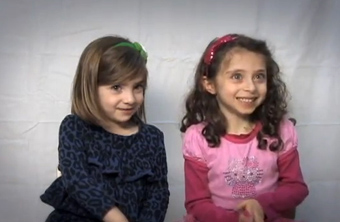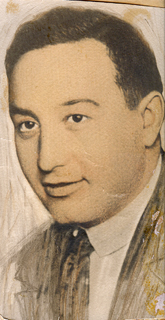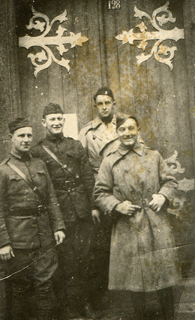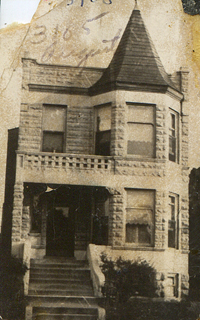Today marks seven years since I was given a new lease on life. It also coincides with one of the worst and saddest days I've ever experienced. However, sometimes the worst personal calamities in the long term become life's biggest gifts. That's not to say that the pain from that that time didn't linger, it has at times mutated like an antibiotic resistant bacteria, hardly recognizable from the original disease, but clearly originating from the primary sickness. If you were to ask me seven years ago, I would have told you that for sure after the breakup that I would bounce back, fall in love again, be married, and have kids by now. For a myriad of reasons, that hasn't happened. And as I approach my 35th birthday, the gulf that divides me from my married friends and those of my parents’ generation widens and widens.
I asked for people's questions about "what it's like to be single and almost 35" because I do sometimes feel like a freak to my friends and to my parents' friends— a lovable, cute, funny freak, but still a freak. So I thought I'd answer some questions to bridge the divide. I requested questions from my Facebook friends, Twitter followers and Scarpeta readers. Here are their questions and my answers. I don't speak for every single woman, just myself.
I have a few single friends in their 30s. In my 20s I used to set them up with single guys all the time just in the spirit of going out and meeting someone new. Now I figure if they want to be set up they'll ask. Is this the best approach?
I think one of the biggest issues with set ups is that sometimes married people set up single people based on no evidence of compatibility other than the fact that the two people are single. If you set up your friends thoughtfully, I think it's welcome whether you are 25 or 70.
I have a question...when I was single I drank a lot more than I do now that I'm married. Do you drink as much now vs. your 20s?
I have reduced my drinking considerably over the past two years, and specifically over the past year. One is for financial reasons and two is because I found that almost every poor decision I have ever made was while inebriated. I rarely have more than one or two drinks if I go out. Not drinking also has its negative side. It has definitely made me less "fun" and I go out less. This leads to a bit of isolation, which isn't great either.
As a 35 year old never-been-married single mom, I find that I don't really fit in anywhere socially. I can't hang out with my old friends who don't have children because their schedules are completely different and we no longer have anything in common. Then the married with children couples I meet, tend to shy away from me. I'm still a little baffled by this rejection, but it continues to occur. I'm guessing people only want to be friends with people exactly like them, meaning three's a crowd. What do you think?
I'm not sure why married people wouldn't want to hang out, but I know I'm guilty of not wanting to hang out with married couples with kids frequently. A very small part of it is jealousy induced depression. My friends are living the life that I thought that I would have. Part of it is that it's hard to have a conversation with someone who is only half listening to you because their focus, as it should be, is on their husband and kids. My friends who are married with kids are cognizant of this and sometimes I'll meet just my girlfriend out for dinner, or my girlfriend and her husband, and sometimes I come by their home to hang out with them and the kids. It's all about balance. As for married people who don't want to hang out with a single mom, I have no idea what to tell you. I think focusing on the mom friendships vs. the couple friendships would make more sense.
I do wish I spent more time with my married friends who have kids. I miss them, a lot.
To what extremes have you gone to get a date (online, speed dating, etc.)?
I've been on JDate, eHarmony, match, some Jewish set up service. None of them were for me, but I think they are great and a lot of relationships come from them. I don't think any of these things are considered extreme anymore, though. My current relationship is with someone I was friends with first for a year and then we moved into something more.
Biological clock concerns?
Yes, of course I have them, but I'm not driven by them. I would like kids, but I realize with every passing year it will become more difficult to have them naturally. I hope that I will be blessed with them, but I don't know that I will take it into my own hands (sperm donor) or adopt without a partner. I can't rule anything out at this point.
Why don't you just write about how being a single-ish woman in your 30s has ceased to have negative cultural cachet?
I'm glad that you think it has ceased. In my (Jewish) community, though, that is not the case. It is antithetical to Judaism to not have a family when the first commandment in the Bible is to procreate. There also isn't room for celibacy like there is in the Catholic Church with nuns and priests. It's not that single women are ostracized, but we are looked at like we are suffering from a disability or disease.
I do think in the urban secular world, being single and in your 30s isn't that big of a deal and is even glamorized. I don't reside their much, though.
Maybe you can discuss how social media/Facebook has impacted being single. Like, how one just used to hang out with people with similar lifestyles/interests and now everyone's "friends" post annoying (well, what I can only assume is annoying to non-kids people) updates on their kids. Oh, and someone in your comment thread mentioned that the married are probably envious of the singletons. I don't think that generalization is any truer than to assume that singletons are jealous of married and/or parents.
I know that there are people who are single who have quit Facebook because they get too depressed by seeing all of their friends documenting their married lives with beautiful children, etc. I also know married people who aren't or won't join Facebook because they aren't in happy marriages and/or they have difficult kids and do not have the energy to put up a facade. I also know people who are unhappily married with and without kids who post on Facebook to provide more false documentation of a happy life.
I personally like to see my friends who are married and with kids on Facebook. It's fun to see how my friends have evolved as parents, and because I love kids, I like to see the pictures and read the cute things their friends say. What I find most annoying from someone who is single or married is a lot of bitching about their lives.
I agree, generalizations aren't great to make. But I would guess the adage "the grass is always greener" is probably true, at least sometimes.
All I know is that there are so many women in this situation and don't want to be in it...How much of the problem is with men, in general, who don't want to commit? And, how much falls on the shoulders of women who give men too much in hopes that they will commit -- only to be let down? It's very frustrating for all my single girlfriends.
There is an article that was written by Tracy McMillan titled "Why You're Not Married." I know it offended a lot of feminists, but I found that for myself it was pretty much dead on. I realized some of what she said before I read the article, but I wish I would have realized her points a long time ago, or at least embraced them.
As for men, I don't pretend to understand why they will or will not commit. If I were to guess, I would say that sometimes they just don't like a woman that much or find her too clingy or annoying. (I myself have been guilty of being too clingy). But usually, I would say, that the answer to that question often has very little to do with any individual woman that they are dating and rather where they are in their own lives, baggage from their parent's marriage, or other self esteem issues.
If anyone agrees/disagrees with anything I've said, I welcome your comments. Or if you have any more questions, I'm happy to answer them.
.jpg)








.jpg)

.jpg)



